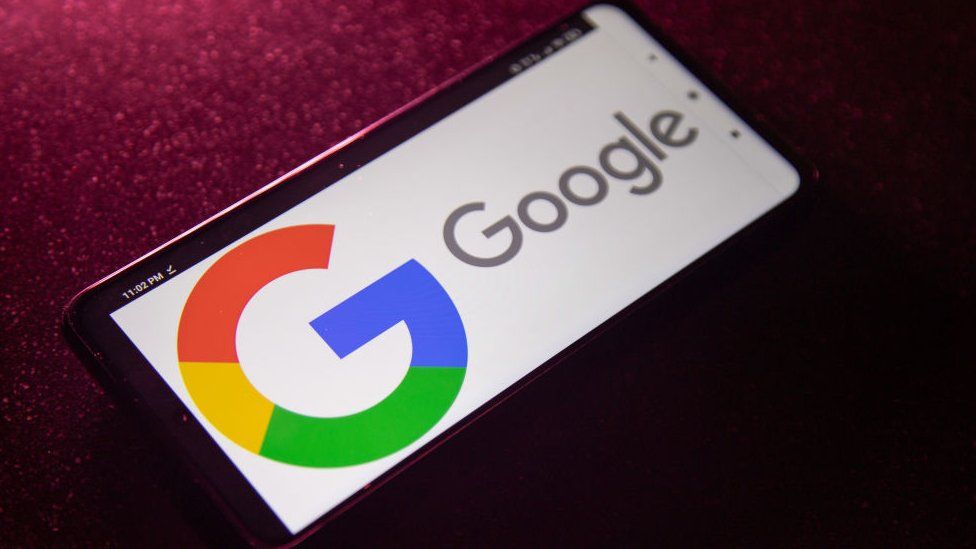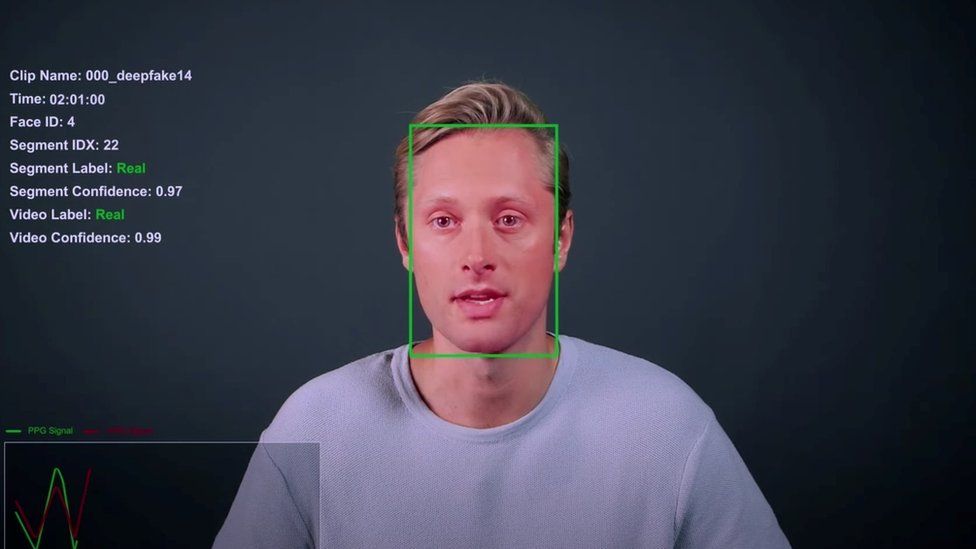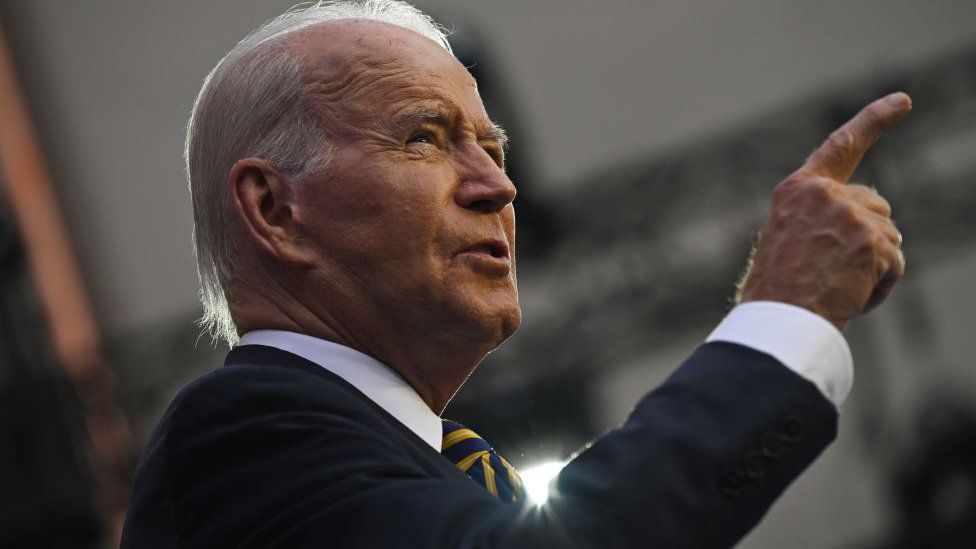Google: Political adverts must disclose use of AI

Google will soon require that political ads on its platforms let people know when images and audio have been created using artificial intelligence (AI).
The rules have been created as a response to the “growing prevalence of tools that produce synthetic content”, a Google spokesperson told the BBC.
The change is scheduled for November, about a year ahead of the next US presidential election.
There are fears AI will supercharge disinformation around the campaigns.
Google’s existing ad policies already ban manipulating digital media to deceive or mislead people about politics, social issues, or matters of public concern.
But this update will require election-related ads to “prominently disclose” if they contain “synthetic content” that depicts real or realistic-looking people or events.
Google suggested labels such as “this image does not depict real events” or “this video content was synthetically generated” will work as flags.
Demonstrably false claims that could undermine trust in the election process are also forbidden at Google, according to the tech giant’s ad policy.
Google requires political ads to disclose who paid for them, and makes information about the messages available in an online ads library.
Disclosures of digitally altered content in election ads must be “clear and conspicuous”, and put where they are likely to be noticed.
Examples of what would warrant a label included synthetic imagery or audio showing a person saying or doing something they did not do, or depicting an event that did not occur.
In March, a fake picture of former US President Donald Trump falsely showing him being arrested was shared on social media. The image was created by AI tools.
Also in March, a deepfake video circulated of Ukrainian President Volodymyr Zelensky talking of surrendering to Russia.
This video can not be played
To play this video you need to enable JavaScript in your browser.
In June, a Ron DeSantis campaign video attacking former President Trump featured images bearing markings of having been created using AI.
The video shared in a tweet contained photos that appeared to have been altered to show Mr Trump embracing Anthony Fauci, a key member of the US coronavirus task force, with kisses on the cheek.
AI experts have told the BBC that while faked imagery is nothing new, the speed of progress within the generative AI field, and potential for misuse, is something to be concerned about.
Google said it continues to invest in technology to detect and remove such content.



